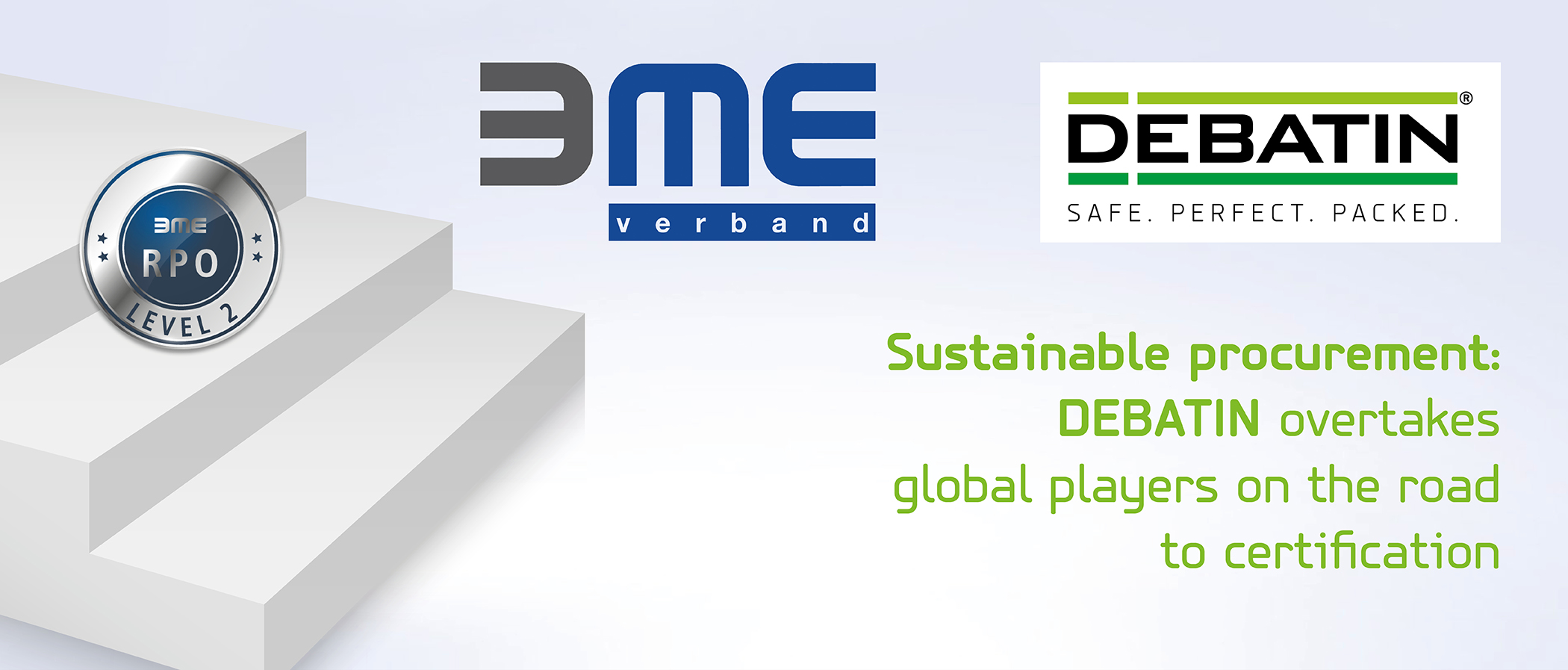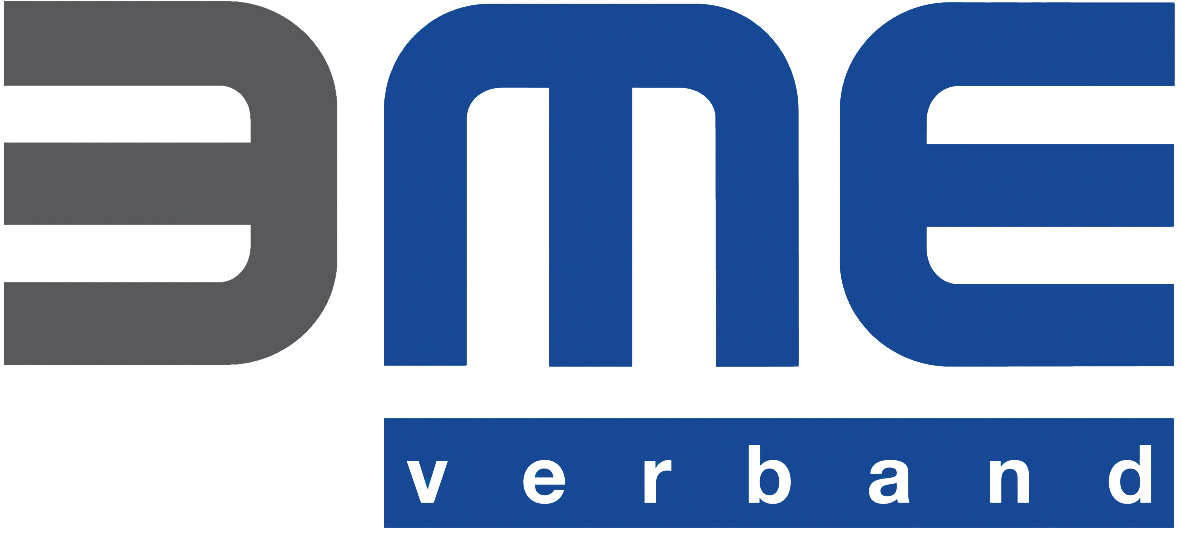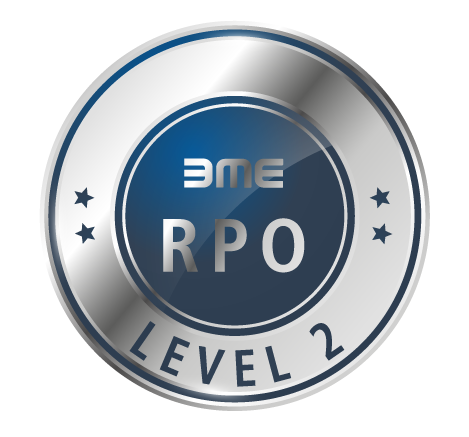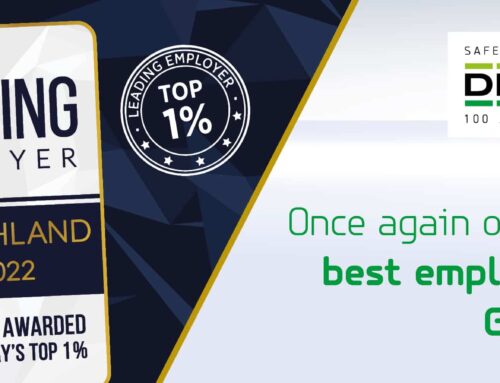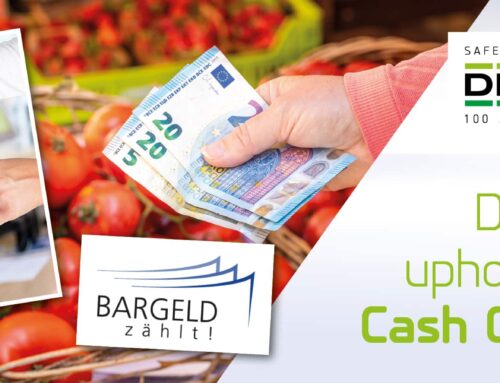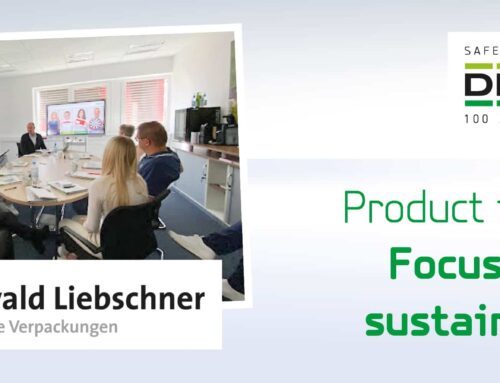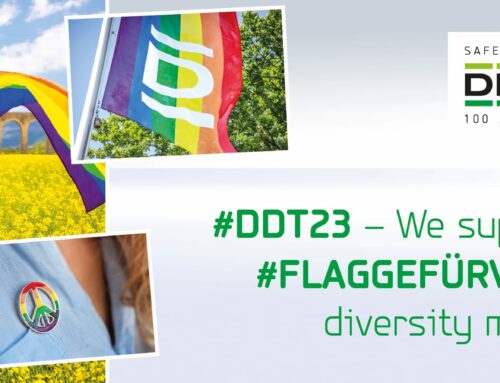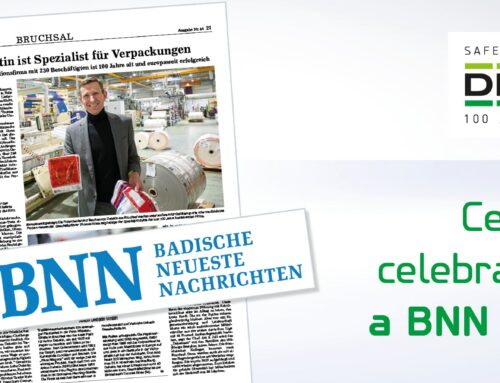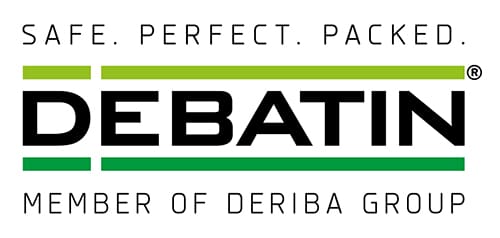Our company began resolutely pursuing sustainability goals back in 2012. We invest considerable time, effort and resources in intricate details – as well as working on the bigger picture, on deep-rooted, structural changes.
Now, finally, we’re reaping the rewards. Anton Debatin GmbH is the first SME in Germany to complete phase 2 of the “Responsible Procurement Organization” certification process overseen by the BME (Association for Supply Chain Management, Procurement and Logistics). This is further proof of our pioneering position in the industry. As a planet-friendly role model, we’ve even attracted the attention of various global players who are keen to learn from our experience and expertise in implementing the various measures.
Procurement: unmatched impact on sustainability
“The procurement department has immense potential for setting the company on a planet-friendly course,” says DEBATIN CEO Thomas Rose, explaining what prompted the company to gain the certification. “When the BME publicised the new programme in 2019, we responded instantly by setting up a project team. Soon after, we drafted and approved our sustainable procurement strategy.” Given that the DEBATIN procurement department procures goods with a value of € 30 million every year, Thomas Rose considers this to be the best way to minimise risk in procurement processes and increase transparency for customers – as well as helping to optimise the overall sustainability strategy which the company consistently pursues. As an added bonus, the entire procedure has a positive impact on the company’s reputation, in which good partnerships with suppliers also play a key role.
The first step: our voluntary commitment
The certification, which is valid for three years, is intricately structured in a manner that bears many similarities to the high-level structure used by the ISO.
To complete the first phase, we made a commitment to verifiably meet the following criteria:
- To develop a sustainable procurement strategy (including measurable goals, based on the UN’s SDGs)
- To appoint a sustainable procurement officer
- To implement and maintain the procurement strategy by developing a sustainability programme for purchasing
- To integrate sustainability measures in operative and strategic procurement processes by defining sustainable procurement guidelines
- To draw up supplier analyses along the supply chain, gradually creating transparency in the supply chain by analysing at least three major suppliers each year
- To draw up an annual sustainability report for procurement
- To participate in the annual BME survey on defined KPIs
- To submit a declaration, signed by the CEO, that we observe human rights
- To develop a Supplier Code of Conduct (this has now been signed by all our immediate suppliers)
We’ve now achieved the following internal goals:
- All the cardboard packaging we use is FSC® certified
- In January 2021, the entire DERIBA Group switched to green electricity (100 % hydropower) and carbon-neutral gas
- We support the “Yes, we plant!” tree project
- We use double-decker lorries and have launched a “Green Logistics” project
- As part of our digitalisation strategy, we’ve introduced catalogue purchasing for procuring category C parts
- We conduct regular audits to ensure we observe human rights, offer excellent working conditions and meet high occupational health and safety standards in our company. Where necessary, we issue recommendations to the respective departments
- We’ve revised our supplier assessment and added sustainability requirements
Our first external successes:
- Our suppliers have donated more than 4,000 trees for the “Yes! We plant” project in Togo
- 100 % of our business partners have now signed our Supplier Code of Conduct
- We’ve identified considerable scope for improvement in material packaging, and have agreed sustainable solutions and specific targets
- We’ve analysed and optimised delivery schedules to reduce transport-related emissions and introduce other improvements
- Many of our suppliers have expressed an interest in carbon neutrality and some have already taken first steps to achieve this goal
Sustainable logistics for a sustainable procurement process
“We’re channelling lots of energy into this certification,” explains Alina Reger, who’s responsible for the sustainability strategy in the purchasing department. “We don’t just comply with the laws – we go the extra mile when it comes to integrating social and ecological concerns in our business activities and in our dealings with our stakeholders.”
Not for the faint-hearted, the process lasts five years. However, we’ve already done lots of the legwork. We’ve joined forces with our suppliers and service providers to optimise delivery schedules and thus reduce transport emissions. We’re also busy digitalising our procurement processes, and are just beginning the pilot phase of a catalogue purchasing project for category C parts. This year, we plan to launch a supplier web portal.
We bestow the “Sustainability Champion” title on suppliers who join our sustainability cause
In order to motivate DEBATIN suppliers to join forces with us in our mission to improve sustainability, we’ve not only defined specific guidelines in our Supplier Code of Conduct, but have also lobbied heavily for our cause. We’re well aware that we can’t simply call all the shots without showing our suppliers that they matter too – at the end of the day, a healthy environment benefits everybody. We publicly show our appreciation to our freight forwarders and those who supply us with commodities or raw materials by nominating “Sustainability Champions”.
The title pays tribute to their efforts towards promoting environmental, financial or social sustainability.

